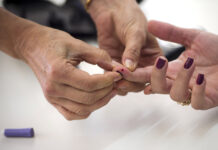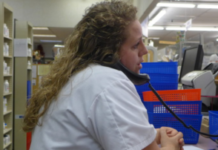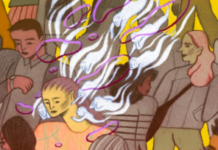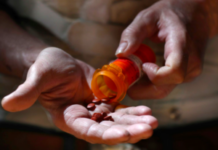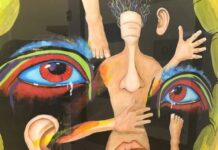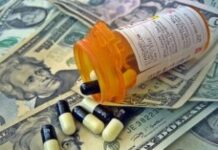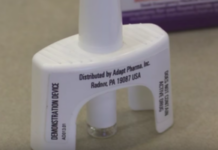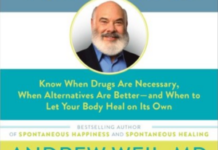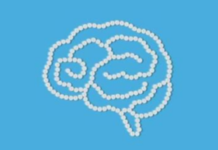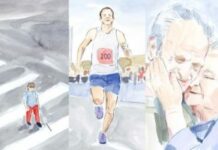When is Stress Good for You?
In this piece for Aeon, Bruce McEwen discusses how "good stress," "tolerable stress," and "toxic stress" act epigenetically on our brain structure, and how we can...
All Tip, No Iceberg: A New Way to Think About Mental Illness
From The Conversation: The search for a single, identifiable cause underlying each mental disorder has yielded very few useful results. New research suggests that a network...
Large Study Confirms Elevated Risk of Diabetes When Prescribed Antipsychotics
A large longitudinal study finds once more that being prescribed antipsychotics significantly increases the risk of diabetes.
Dementia Patients at Risk of Injury or Death Due to Antipsychotics
From The Independent: Thousands of people with Lewy Body Dementia are being prescribed antipsychotic drugs, increasing their risk of death fourfold.
"These medicines, prescribed to around...
A Memoir of Chronic Fatigue Illustrates the Failures of Research
From The New Yorker: In her new book Through the Shadowlands, Julie Rehmeyer chronicles her struggles with chronic fatigue syndrome, or systemic exertion intolerance disease (S.E.I.D.),...
Gabapentin: A New Target for Abuse
From STAT: Gabapentin, a drug that acts as a sedative and is also used to treat conditions including nerve pain, epilepsy, restless leg syndrome, and...
I Took My First Antidepressant, and the Effects Were Frightening
In this opinion piece for The Guardian, Deborah Orr tells of her frightening experience with intense disassociation that occurred after starting an antidepressant.
Article →
People Are Hacking Antidepressant Doses to Avoid Withdrawal
From New Scientist: Some organizations are helping people hack their dosing regimens so they can taper off psychiatric drugs without severe withdrawal effects. One Dutch organization...
Research Suggests that Forensic Psychological Examinations are Unreliable and Biased
Concerns have been raised about inconsistent and unreliable results, which may lead to injustices in sentencing or even wrongful convictions.
This is the Truth About Personality Disorders
From The Independent: Armchair diagnoses of personality disorders are a rising trend, from speculations that President Trump has narcissistic personality disorder to viral articles about discerning...
Why Disclosure Policies Don’t Discourage Drug Salesmen
From The Chronicle: The practice of pharmaceutical industry payments to academic researchers to help promote their drugs remains widespread. Requiring scientists to disclose their ties...
Jerome Adams Nominated as New U.S. Surgeon General
From STAT: President Trump has nominated Indiana's health commissioner, Dr. Jerome Adams, to be the next surgeon general. Adams has played a critical role in...
When Anxiety or Depression Masks a Medical Problem
From The New York Times: The mind and body are more connected than we often think — symptoms of anxiety and depression may result from...
“I Cried Every Day at Work”: Mental Health Among Doctors
From The Guardian: Doctors are increasingly experiencing mental health issues due to the unrelenting pressure, inhumane working hours, brutal competition, and workplace bullying that is...
When Switching Antipsychotics, No Difference Between Immediate and Gradual Discontinuation
Review study compares outcomes of gradual vs. immediate antipsychotic discontinuation when switching from one drug to another.
Psychics Who Hear Voices Could Be on to Something
In this piece for The Atlantic, Joseph Frankel compares and contrasts the voice-hearing experiences of self-described psychics and mediums with the experiences of people diagnosed with...
Half of Opioid Prescriptions Go to People With Mood Disorders
From STAT: A recent study found that 51 percent of all opioid prescriptions in the U.S. are written for people diagnosed with anxiety, depression and other...
Researchers Find Brief Intervention for Preventing Self-Harm Ineffective
“These interventions also have the potential to increase rumination and negative affect, and potentially self-harm repetition, by serving as unhelpful reminders of negative experiences in the lead-up to the index self-harm event or during hospital treatment.”
Why Isn’t Big Pharma Paying for the Harm it Caused?
From Alternet: The pharmaceutical industry has played a major role in causing the opioid crisis by downplaying the potentially addictive and fatal effects of narcotic pain...
Big Pharma Puts the Squeeze on Cities Battling Opiate Crisis
From RevHub: The city of Baltimore is facing an unprecedented opioid overdose epidemic. Due to skyrocketing drug prices, the city is running out of funds...
Dr. Andrew Weil Says We’re Taking Too Many Medicines
From The New York Times: According to Dr. Andrew Weil, who is best known for popularizing the concept of integrative medicine, the problem of overmedication...
Study Shows Clozapine Can Result in Serious Gastrointestinal Complications
A large observational study published in CNS Drugs sheds light on serious adverse effects of the ‘gold standard’ antipsychotic Clozapine.
Calling it “Brain Disease” Makes Addiction Harder to Treat
From The Boston Globe: Conceptualizing addiction as a biological brain disease is often ineffective, as the biological model overlooks the important psychological and social factors that...
How Love, Support, and Exercise Build Resilience After Trauma
In this piece for ABC News, Farz Edraki and Lucy Fahey present five stories of people who have recovered from traumatic events through various means,...
Yoga and Meditation Can Change Your Genes, Study Says
From TIME: A new scientific review suggests that yoga, meditation, and other mindfulness activities can reverse stress-related changes in genes linked to health problems and...



